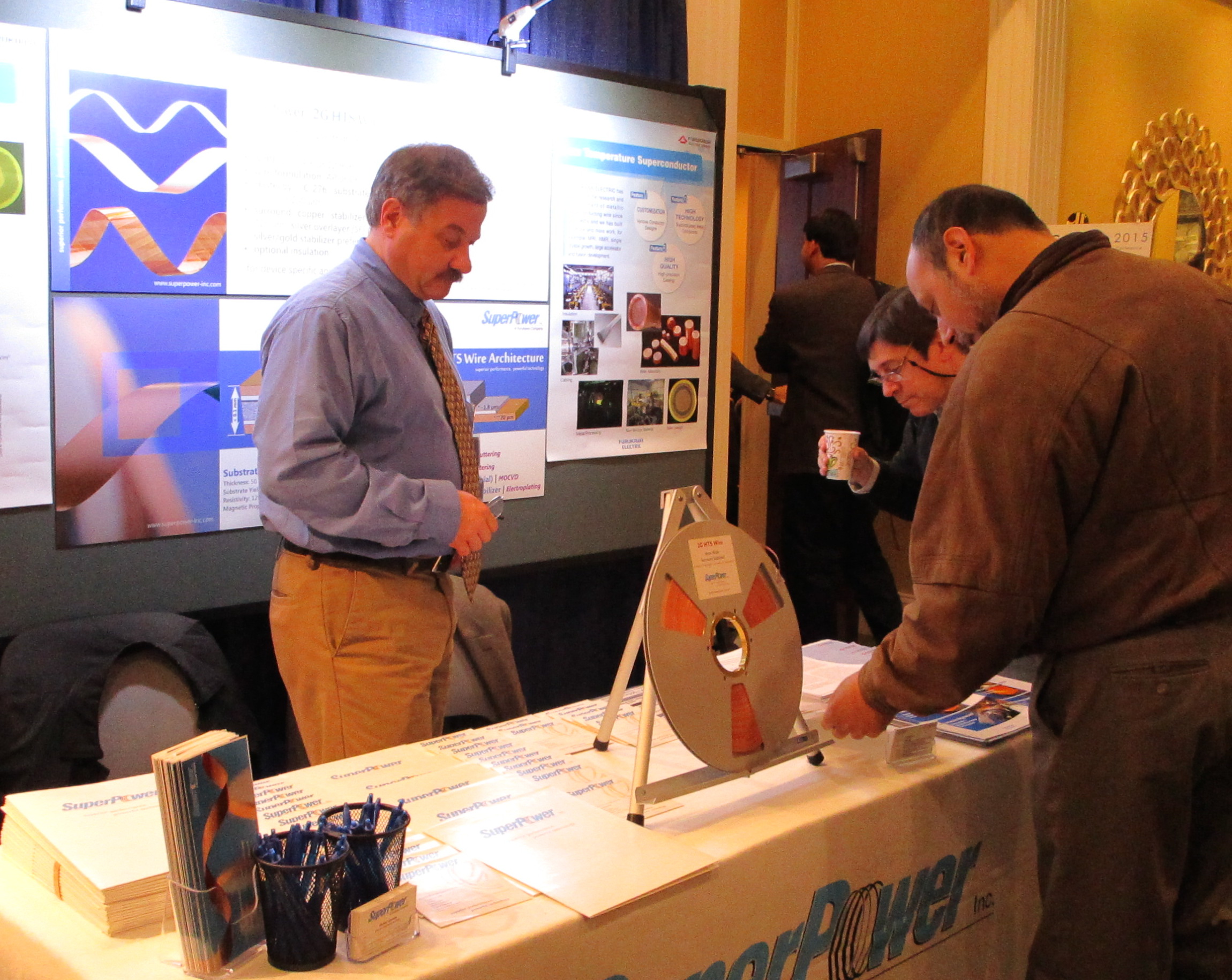![]() Forging links between industry and fundamental science
Forging links between industry and fundamental science
by Johannes Gutleber (CERN) with Alexandra Welsch (UNILIV)
Industry participation - exhibitor stand
Image credit: FCC
A future energy frontier research infrastructure requires current technologies to be pushed far beyond the state-of-the-art. Achieving collider parameters in an affordable and sustainable manner calls for breakthroughs in technologies, such as high-field magnets, superconducting radiofrequency cavities, and efficient RF power sources. This creates unprecedented opportunities for partnerships between academia and industry to the benefit of society.
The FCC study is committed to involving industry partners from the beginning, to jointly define the research and development roadmaps and to launch knowledge transfer programs. Starting collaboration at an early stage creates a mutually beneficial situation. It helps industry carry out strategic planning and provides the research community with better confidence in product quality and enhanced cost control. Nine key players from industry joined FCC Week as sponsors and several more attended the technical sessions, giving a glimpse of both the technical capabilities and economical needs that are required to overcome today’s technical limits.
For example, the R&D program of a 16 Tesla superconducting accelerator magnet, suitable for a 100 TeV hadron collider, calls for focused activities around the improvement of Nb3Sn based low-temperature superconductors in sufficiently large quantities and with ample performance margin, never produced before. Potential suppliers not only face the obvious challenges with respect to an increase of the critical current density and the sustained delivery of large quantities at high quality levels, but also the need to deliver improved materials and quantities at affordable cost for high-energy physics applications, as well as for other solid business cases.
To better understand the opportunities for high field applications in all relevant domains, dedicated technical R&D will be required together with business-case scouting, as foreseen by the EuroCirCol knowledge and innovation management task.

